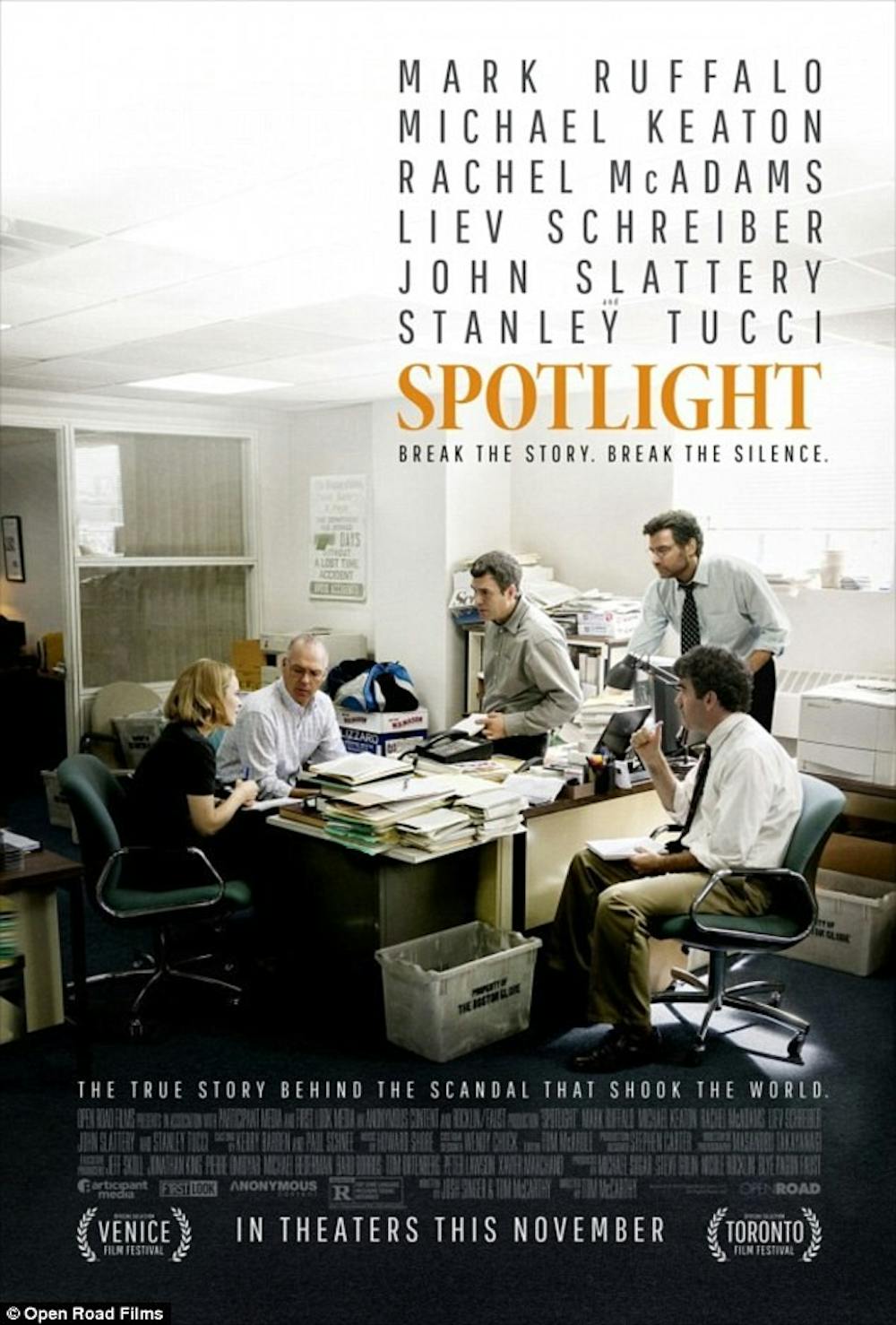While many public interest stories captivate wide audiences, there is a need for the careful handling of the facts since getting some information wrong may compromise the integrity of the piece as a whole. The new release “Spotlight” highlights obstacles of investigative reporting — namely the challenge of finding concrete facts to unlock the story. The plot involves reporters from The Boston Globe’s Spotlight team investigating the Catholic Church’s cover-up of molestations, a narrative told with the commitment of a news writer. The movie is an ideal example of the investigative journalism subgenre, reminiscent of the Watergate drama “All the President’s Men.”
In “Spotlight,” the action almost exclusively relates to the investigated events themselves, bringing them to life in a realistic, unflashy manner. The audience watches as the Spotlight team builds their sources and case while the conspiracy balloons around them, growing from a local issue to a horrifying scandal that rattles the Church. The expansion of the plot’s scope parallels other aspects of cinematography — “Spotlight” begins with claustrophobic imagery, and the audience can sense the movie’s progression as the reporters discover more leads. Commonly found in the investigative genre, the density of plot details can make it challenging to navigate, but the general trajectory is clear. The flow of information also parallels the characters’ unpredictable journey, and powerful moments emerge with each startling revelation.
The characters are reporters and editors trying to do their job to the best of their ability, and while the characterization isn’t prominent — except for one outburst from an excellent Mark Ruffalo — each actor seems genuine. While Ruffalo’s Michael Rezendes plays in the liveliest moments, Michael Keaton (as Robby Robinson) also stands out as a veteran leader, and his experienced background intensifies his character. Throughout the film, the Catholic Church looms over everything — its heavy presence felt in every scene.
“Spotlight” does not go for flashiness or over-dramatization. Rather, its strong commitment to the storyline, from the writing and directing to the ensemble, reinforces the importance of good journalism.







